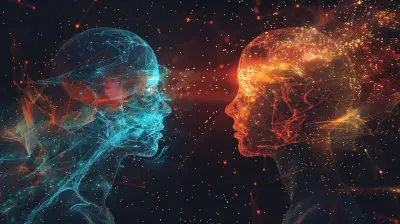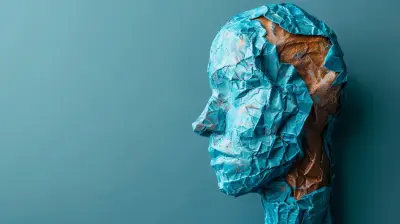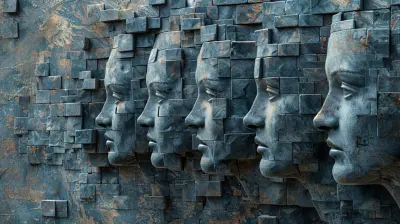The Psychology of Fear in Horror Movies: Why We Love to Be Scared
7 May 2025
Have you ever wondered why you willingly put yourself through the spine-chilling experience of watching a horror movie, knowing full well you'll be hiding behind a blanket or jumping at every creak in the house later? Isn’t it weird? We’re drawn to fear like moths to a flame, even though fear isn’t exactly a warm and fuzzy emotion. So, why do we love to be scared? How does our mind process fear in such a way that we find it enjoyable?
Let’s dive into the psychology of fear in horror movies and uncover the strange, fascinating reasons behind our love for all things eerie.
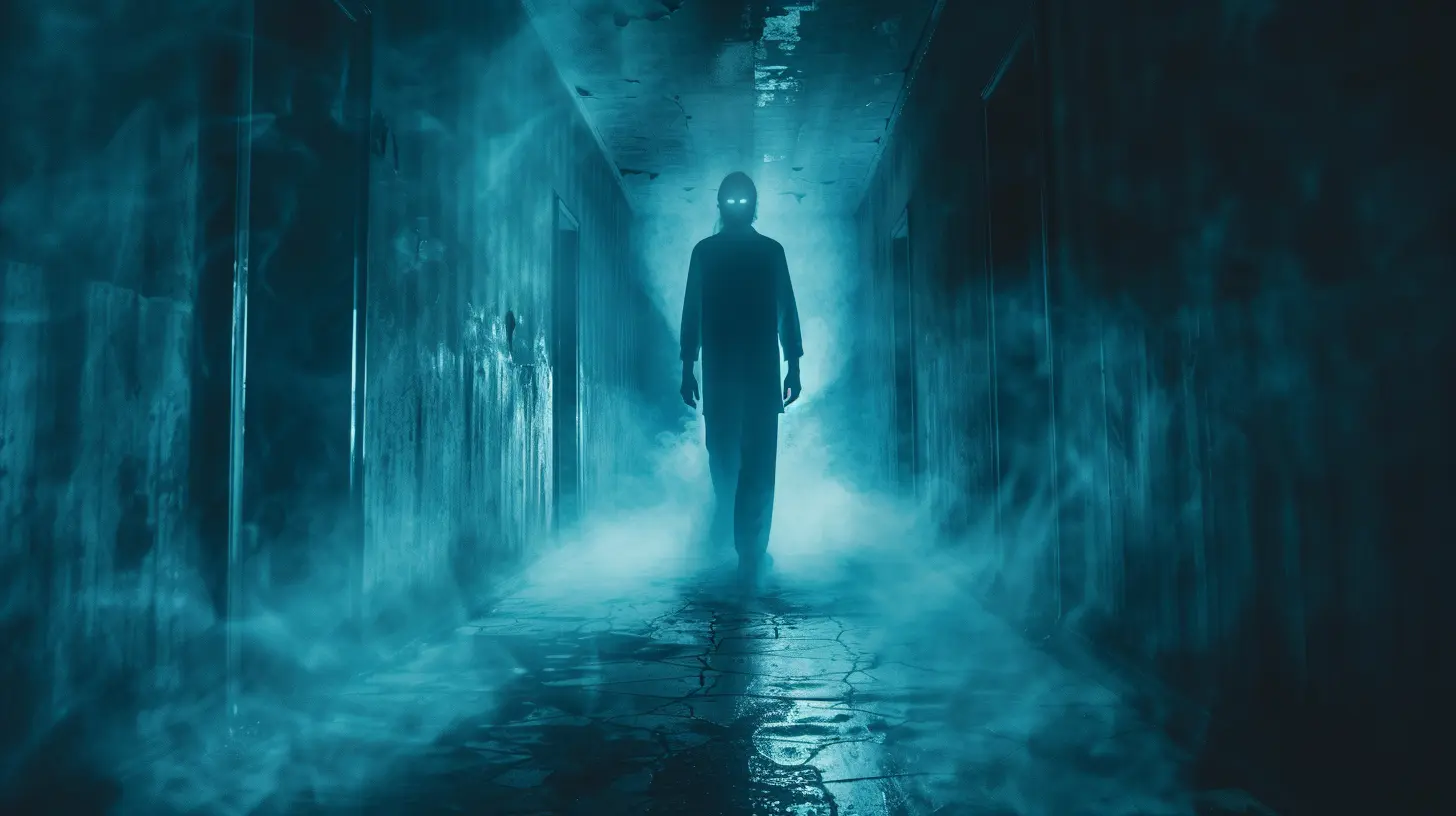
The Evolution of Fear: It's in Our DNA
Fear is one of the most basic human emotions. It’s hardwired into our brains because, well, it kept our ancestors alive. Imagine living in a world where survival meant constantly dodging predators, scavenging for food, and avoiding natural disasters. Fear was the brain's way of saying, "Hey, pay attention! Something bad is happening!" It triggered the fight-or-flight response, preparing our bodies to either take action or flee from danger.But here’s where it gets interesting: While fear in real life often feels like something we should avoid, fear in a controlled environment—like a movie theater or your living room—can be thrilling. Weird, right?
So, why do we voluntarily seek out fear in the form of horror movies? The answer lies in how our brains process fear when we're in a safe space.
Fight-or-Flight Without the Risk
When you're watching a horror movie, your brain still triggers the fight-or-flight response, but because you know you're not actually in danger, the experience becomes exhilarating rather than terrifying. Your heart races, your palms sweat, and your adrenaline spikes, but there's no real threat. It's like riding a rollercoaster — you get all the thrills without any of the actual danger.This is called “controlled fear,” and it's a huge part of why we love horror movies. We get to experience intense emotions in a safe, controlled environment, and that can be incredibly fun. The brain recognizes that the fear is fake and allows us to enjoy the rush without panicking.
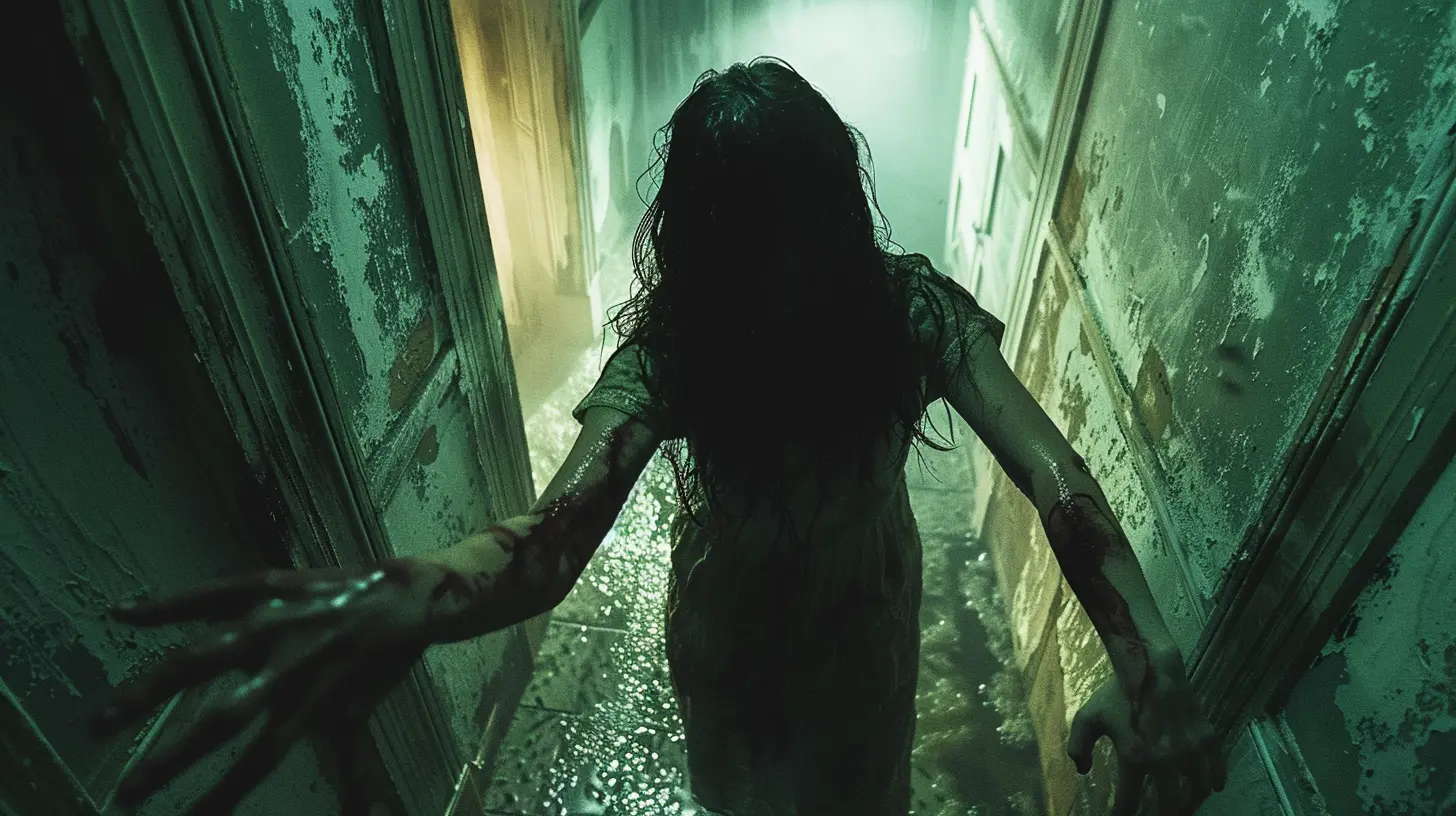
The Role of Catharsis: An Emotional Release
Let’s be honest—life can be stressful. Whether it's work, relationships, or just the everyday grind, we all carry around a certain amount of emotional tension. Horror movies offer a release valve for that tension. This is where the concept of catharsis comes in.Catharsis refers to the process of releasing, and thereby providing relief from, strong or repressed emotions. When you watch a horror movie, all those pent-up feelings have a chance to bubble up to the surface and get released. That moment when the monster jumps out from the shadows? It's not just a scare—it's an emotional purge. After the movie, you often feel lighter, less stressed, and strangely calm. It’s almost like the movie gave your brain a workout, and now it’s ready to relax.
Horror as a Pressure Valve
Think about it like this: horror movies are like pressure cookers for your emotions. The suspense builds, the tension mounts, and then—bam!—you get that big scare or shocking twist, and all the pressure is released. It’s the same reason why some people cry during sad movies; it’s a way to process and release emotions safely. Only with horror, you're releasing fear and anxiety instead of sadness.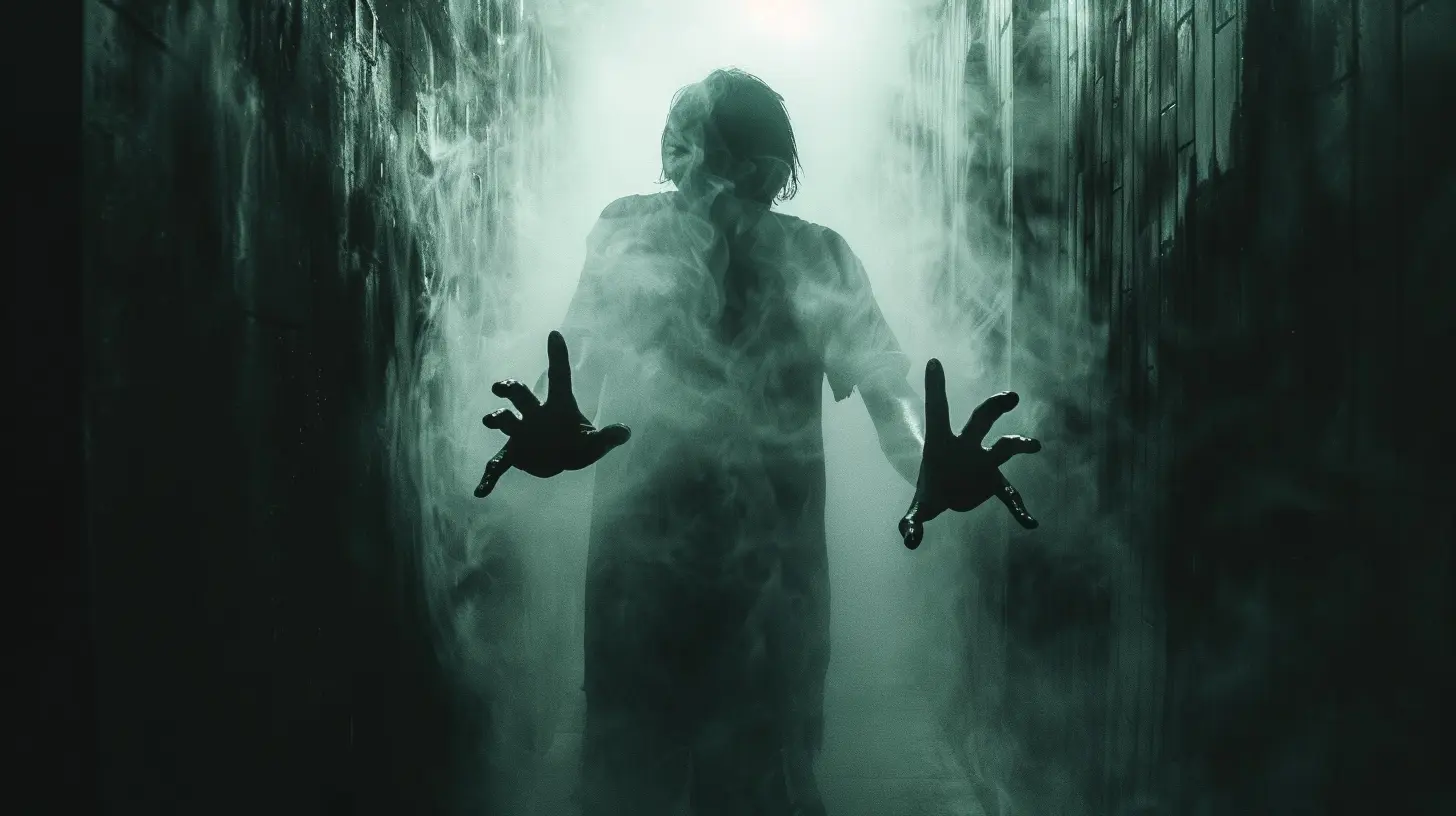
The Thrill of the Unknown: Curiosity Killed the Cat (But Not You)
Humans are naturally curious creatures. We want to understand the world around us, even the darker, scarier parts of it. Horror movies tap into that curiosity, allowing us to explore the unknown without having to actually experience it.There's something inherently intriguing about the unknown—whether it's the supernatural, the unexplained, or the just plain creepy. When you're watching a horror movie, you're not just scared; you're also curious. What’s going to happen next? Is the killer behind the door? Will the ghost show up again? That curiosity keeps you hooked, even as you feel the fear creeping in.
Fear of the Unknown: A Psychological Tug-of-War
Psychologists often talk about the fear of the unknown as one of the strongest and most primal fears we experience. It’s why ghost stories, haunted houses, and monsters lurking in the dark are so effective at scaring us. These things play on our fear of what we can’t see, can’t understand, and can’t predict.But at the same time, we’re drawn to the unknown because we want to make sense of it. Horror movies give us a way to explore the unknown in a way that feels manageable. We get to dip our toes into the darkness, so to speak, without getting lost in it.
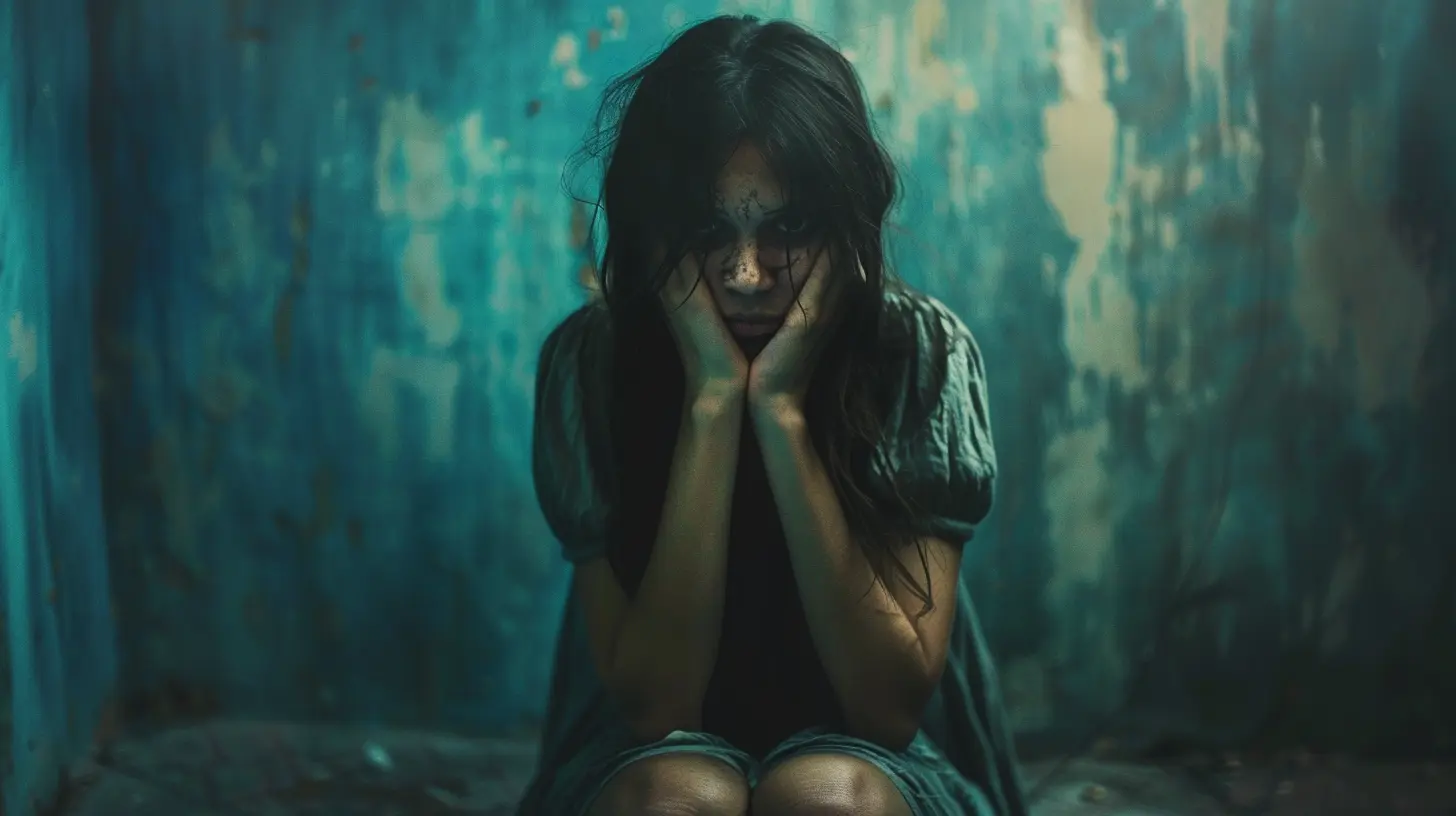
The Appeal of Facing Fear: A Safe Way to Conquer Anxiety
Believe it or not, horror movies can actually help you become braver. When we watch something scary and make it through to the other side, we feel a sense of accomplishment. In a way, horror movies offer us a chance to face our fears and come out victorious—all without leaving the couch.Exposure Therapy: Training Your Brain
Here’s where things get really psychological. There’s a type of treatment for anxiety called exposure therapy, where patients are gradually exposed to the thing they’re afraid of in a controlled environment. Over time, they become desensitized to it, and their fear decreases.Watching horror movies can function in a similar way. By exposing yourself to fictional fears, you may actually be training your brain to handle real-life fear more effectively. The next time you’re faced with a scary situation, your brain might be better equipped to deal with it because it’s already been through the emotional wringer in the form of a horror movie.
The Social Aspect: Scary Movies Bring Us Together
There’s something about watching a horror movie with a group of friends that makes the experience even more enjoyable. You laugh, you scream, you clutch each other’s arms—it’s a bonding experience like no other.The Power of Shared Fear
Psychologically speaking, shared fear can create a sense of camaraderie. When you go through something scary with other people, you form a stronger connection with them. It’s why people tend to bond with strangers during emergencies or why group experiences like haunted houses can be so memorable.Horror movies, in a way, mimic that experience. Even though you’re not actually in danger, the shared experience of being scared together can create a sense of unity. It’s one reason why horror movie marathons are such a popular social activity.
Why We Keep Coming Back for More: The Peak-End Rule
It’s not just the fear itself that keeps us coming back for more horror; it’s also how we remember the experience. Psychologists have identified something called the peak-end rule, which suggests that we tend to remember an experience based on two key moments: the peak (the most intense part) and the end.In horror movies, the peak is usually the scariest moment—when the monster appears, the killer strikes, or the big twist is revealed. The end is when everything gets resolved, and you can breathe a sigh of relief. These two moments stick in our brains, and because the end is often a relief, we tend to remember the experience as more enjoyable than it actually was in the moment.
This psychological quirk plays a big role in why we keep coming back to horror movies. We remember the thrill of the peak and the satisfaction of the resolution, and that makes us want to experience it all over again.
Final Thoughts: Fear as Entertainment
At the end of the day, horror movies tap into some of the most basic elements of human psychology—our fear response, our curiosity, and our need for emotional release. They allow us to experience fear in a controlled, safe environment, which can be both thrilling and cathartic.Like roller coasters and haunted houses, horror movies offer a way to confront fear without the actual danger. And as strange as it might seem, that combination of fear and safety is exactly what makes them so irresistible.
So, the next time you find yourself drawn to a creepy movie, remember—your brain is just looking for a little adrenaline rush and a chance to blow off some steam. And honestly, who can blame it?
all images in this post were generated using AI tools
Category:
Psychology Of FearAuthor:

Nina Reilly
Discussion
rate this article
3 comments
Sylvia Beck
This article insightfully explores the paradox of fear in horror movies—how the thrill of anxiety can trigger catharsis and emotional release. It highlights the psychological mechanisms behind our attraction to fear, emphasizing its role in confronting our deepest anxieties in a safe context.
May 14, 2025 at 3:41 PM

Nina Reilly
Thank you for your thoughtful comment! I'm glad you found the exploration of fear's paradox and its psychological effects engaging. It's fascinating how horror can serve as both a mirror and a refuge for our anxieties.
Olivia Lee
Embrace the thrill! Fear in horror movies is a fun way to explore emotions and bond with others. Enjoy!
May 12, 2025 at 4:24 PM

Nina Reilly
Absolutely! Horror movies tap into our primal fears, allowing us to experience and bond over thrilling emotions safely. Enjoy the ride!
Noelle Bellamy
This article brilliantly explores the paradox of fear in horror films—how it captivates us, triggers adrenaline, and fosters a unique sense of community. It’s fascinating how our minds crave the thrill of controlled terror!
May 12, 2025 at 3:08 AM

Nina Reilly
Thank you! I'm glad you found the exploration of fear's paradox in horror films intriguing. It's a testament to our complex relationship with fear and thrill!
